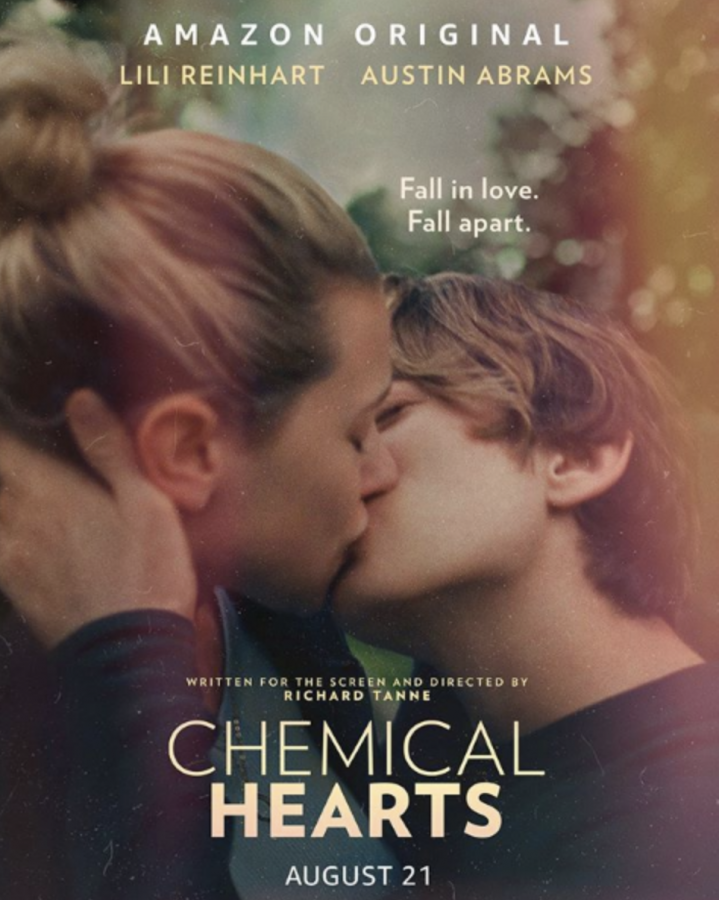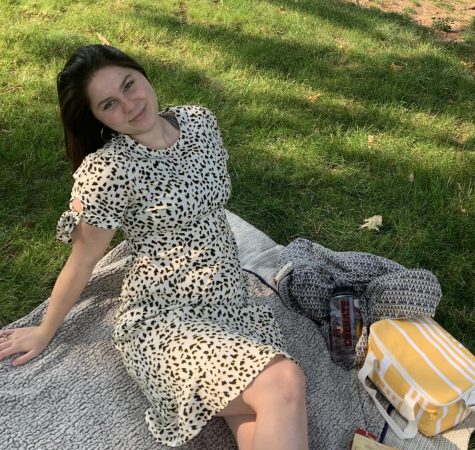“Chemical Hearts:” not your usual “coming of age” film
“Chemical Hearts” was released on Aug. 21 and can be viewed on Prime Video within your Amazon Prime account.
Sep 9, 2020
If I’m being honest, I am not one for romances or dramas. The ones I appreciate are few and far between. However, “Chemical Hearts” caught my attention for its unique storyline while providing the romantic qualities everyone knows and loves. The film does not add to the overabundance of rom-coms or romantic movies that saturate cinemas today. Instead, it provides an original story for everyone to enjoy, even those who hate romance.
Our main protagonist Henry Page, played by Austin Abrams from “Euphoria,” is a hopeless romantic with a passion for writing. He soon meets Grace Town, played by Lili Reinhart from “Riverdale,” with whom he immediately begins to fall in love. While Grace possesses a cold, mysterious demeanor, Henry pursues her with the utmost persistence, which leads to an unusual relationship.
The overarching plot of the film centers on the ugliness of grief and moving forward. We go through these difficult times with the characters and, while the movie can be slow at times, it keeps your attention with a sweet B plot from the supporting cast.
Although the plot is compelling, I run into real issues with the main characters’ personalities. I experienced the same problem with Holden Caulfield’s character in the iconic novel “Catcher in the Rye.” Personally, I never liked Holden. I understand he has psychological problems, but they are often used to excuse his pompous and entitled attitude. Mental illness does not justify the poor treatment of others, which is an issue with the main characters in the movie, especially Grace.
Because of their mental traumas, Henry and Grace have a tendancy to be detached from the world and the relationships around them, namely Grace. While she continually pushes Henry away, she also doesn’t completely let him go, which creates a confusing dynamic for the duo. We, as an audience, understand her pain and why she is treating Henry this way, but it does not mean her behavior is acceptable.
Another issue I have with the movie is its dialogue. It seems that the writers wanted to include witty, coming-of-age exchanges between the characters, but it comes off as forced and unnatural.
“I think you are the most confusing human being I have ever met,” says Henry.
“And I think I’m the most confused human being you’ve ever met and that confuses you,” Grace replies.
This interaction is not natural to me, and there are plenty of other examples like this. Regardless, these are my only problems with the movie. The romantic side of the movie is just the icing on the cake. It doesn’t have the perfect storybook ending, something that typically occurs in this genre of film. There is pain, sadness and heartbreak with creative symbolism sprinkled throughout the story. I love how the audience gets to watch the young characters grow into themselves. We can see a clear before and after for both Henry and for Grace. Just as in life, there are lows and highs in our journeys through the recovery from pain and heartache.













